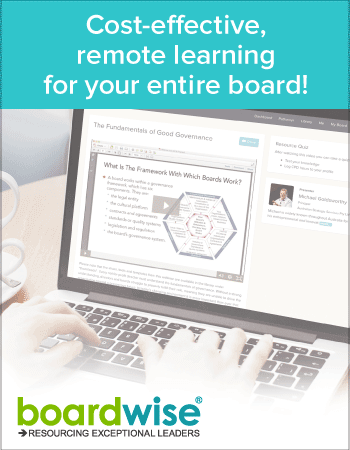Who Should Control the Reporting of Information to the Board?
-
boardpacks
Board Packs Who Should Control the Reporting of Information to the Board?
To provide effective governance, boards must proactively control the information reported to them rather than passively receiving whatever management chooses to supply.
Here are the key reasons why the board itself must drive reporting:
1. Enables Board to Obtain Required Information
Controlling reporting enables the board to proactively obtain the specific information it needs to fulfil its oversight duties. This includes strategic, financial, risk, compliance, performance, competitive, and external expert information required for the board’s role.
Without exerting control, the board risks becoming dependent on management’s discretion over what reports are delivered. Management may emphasise certain data while downplaying other facts to portray performance positively. They may default to operational details rather than strategic insights more constructive for the board.
By controlling reporting, the board can request appropriate strategic and enterprise-level information from management on its own terms. This empowers oversight rather than ceding oversight responsibility.
2. Reduces Selective or Manipulative Reporting
Management may consciously or unconsciously report information in ways that manipulate the board’s perspective or conceal emerging problems. Executives may selectively highlight facts portraying their initiatives favourably while omitting data that raises flags.
By driving reporting itself, the board reduces risks of biased, incomplete or selective information flow from management. The board can compel more balanced, fulsome reporting illuminating a range of considerations - positive and negative.
3. Helps Meet Directors’ Duty of Care
Directors have a legal duty of care requiring them to act in good faith in the organisation’s best interests. This is predicated on being informed about operations, strategy, risks, and compliance. Controlling reporting enables boards to fulfils this duty.
Passively waiting for management reports may mean the board lacks crucial information to provide sufficient oversight. Driving reporting helps guarantee the board receives timely, comprehensive updates to exercise care on stakeholders’ behalf.
4. Allows Board to Set Reporting Expectations
Controlling reporting allows the board to define expectations like report subjects, formats, frequency, contributors, and quality standards. For example, the board can stipulate quarterly risk reports, monthly financial dashboards, and special culture surveys.
Conversely, if management drives reporting, the board has limited ability to demand reports be modified, added or cancelled. Controlling requirements empowers the board to course-correct reporting when it becomes misaligned with information needs.
5. Facilitates External Expertise
While management reporting provides operational insights, boards often need outside perspectives on risks, strategy, executive performance and other matters to make fully informed decisions.
By driving reporting, the board can readily request additional reports from third-party experts, auditors, advisors and others to complement internal updates. This casts light from multiple angles to avoid blind spots.
6. Reinforces Board’s Ultimate Authority
Allowing management to control information flows to the board conveys that executives have the upper hand over governance. However, the board has ultimate responsibility under law for oversight and decision-making.
Asserting control of reporting rather than automatically accepting managerial authority makes clear where the buck stops. It puts the board firmly in the driver’s seat consistent with its duties.
7. Aligns with Legal Precedent
Justice Middleton’s 2011 Centro ruling established important legal precedent on boards controlling reporting. He stated that boards have a responsibility to actively control the information they receive, not just passively accept whatever management provides.
This Australian federal court judgment underscores that controlling reporting is not just prudent governance but a legal imperative for directors. Boards must proactively manage information to properly discharge their statutory duties.
Risks of Ceding Control
Relinquishing control of reporting to management increases risks of inadequate information along multiple dimensions:
-
Management may emphasise facts that cast issues in a positive light advantageous to them. Negative or complex data may be downplayed.
-
Reporting may default to operational minutiae not helpful to the board’s strategic role. Relevant strategic insights get crowded out.
-
Management may report selectively based on personal biases or blind spots, omitting important alternative perspectives.
-
Changes in business conditions may warrant more or different reporting which management is slow to initiate.
-
Management may constrain external expert input, limiting the board’s visibility.
-
Gradually the board becomes conditioned to passively receive whatever management chooses to provide.
The Bottom Line
Effective governance requires the board drive reporting requirements proactively to obtain comprehensive, balanced information.
While the relationship with management should be a collaborative partnership, the board fundamentally controls reporting in line with its legal duties.
Additional Resources
Effective Board Packs: The Complete Guide
Key Stages of Building a Financial Model for NFP Organisations
Frequently Asked Questions
Who reports directly to the board of directors?
The CEO almost always has a direct reporting relationship to the board of directors. As the top executive responsible for managing the company's operations and strategy, the CEO provides regular updates to the board on performance, opportunities and challenges.
Other key executives like the CFO, COO or heads of major divisions may also have some direct interaction with the board of directors through presentations at board meetings or other formal reporting channels. However, the CEO serves as the primary liaison between the management team and the board.Should the CFO report to the board?
While the CEO serves as the primary conduit between the management team and the board of directors, the Chief Financial Officer (CFO) also takes on an important role interacting with and reporting to the board. The CFO does not typically have a direct reporting relationship to the board. Instead, the CFO reports to and takes direction from the CEO as a member of the executive team.
However, on a regular basis, the CFO will engage directly with the board through attendance at board meetings, presenting financial results, discussing audit findings, providing analysis on financial impacts of strategy, fielding questions, and keeping directors informed on performance.
This allows directors to gain financial insights from the top finance executive directly, while still maintaining the CEO's role as head of management.The CFO's regular involvement with the board provides valuable financial perspective and helps ensure appropriate oversight of financial reporting and risks. -



